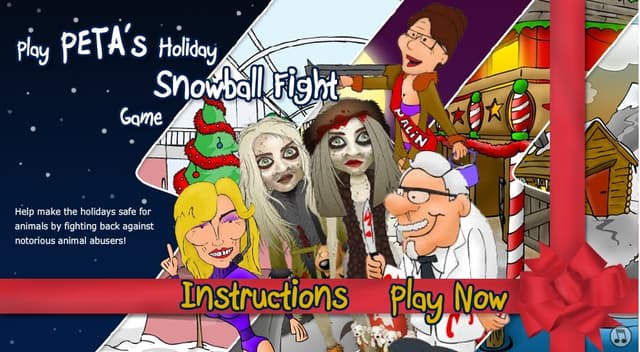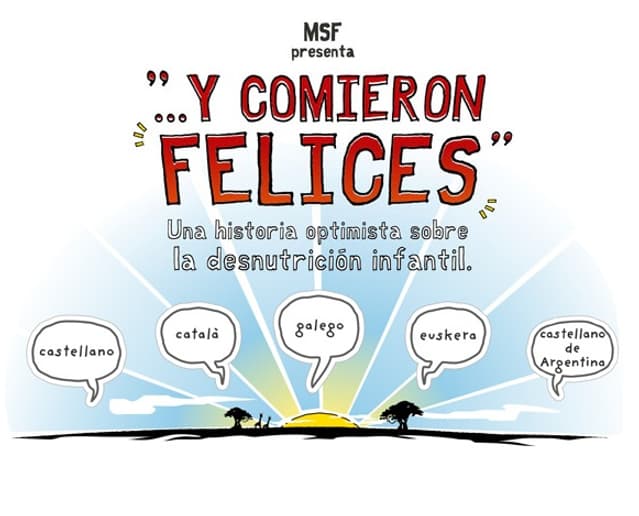My new obsession: online gaming
Those of you that know me will be surprised to hear that this month I transformed from the bright and bubbly Lucy you know and love into a strange creature, shuffling into the office each morning with my head bent down, back hunched, thumbs too cramped to type and an absolutely ruined manicure.
- Written by
- Lucy Innophoria
- Added
- June 02, 2014
You might be even more surprised to hear that my wretched physical state is due to nothing more than my new obsession – online gaming (and no, it’s not the game I star in – www.innophoria.com).
I’m pretty sure that even those of you that don’t know me yet will be surprised to hear that the games I’ve been playing were all programmed and developed by – wait for it – social organisations.
Yes, that’s right. At a time when individuals are spending more on video games than any other form of entertainment, including DVDs, recorded music and cinema tickets, even social organisations are keen to make the most of this online phenomenon. Well, some of them, at least.
And there’s an important reason for doing this. According to Tom Chatfield’s best-selling book Fun Inc, the benefit that games have over any other medium is that they provide experiential learning. This is exactly why gaming has so much potential within the social sector: you can find out about a cause and the work of a particular social organisation and even discover how you can help – all while having fun.
Now before you all start moaning about budget and resources, the reason why my thumbs have swollen to the size of small limbs is mainly thanks to some of the simpler games I’ve been playing – all of which can be developed in a matter of days thanks to the masses of free source-code available online.
Greenpeace has a whole variety of simple games available online, which are mainly modified versions of arcade classics. My current favourite is their Pacman adaptation, Turtles vs Tata. Their tongue-in-cheek Spank Esso is an excellent example of how to achieve the balance between educating potential supporters about a serious issue while promoting a fun and positive relationship with the organisation.

PETA’s Holiday Snowball also made me laugh out loud – while throwing snowballs at cartoon celebrities that have been caught wearing fur.
If you’re still not convinced that even a simple game can have a significant impact on your organisation, what if I told you that the development of Farmville (a game that attracts around 32 million players each day on Facebook) took just five weeks from conception to implementation and was made purely from free and off-the-shelf components.

While Greenpeace and PETA’s gaming offerings are certainly fun, other organisations are taking things a step further: Medicins Sans Frontiers Spain’s game, Y se comieron felices (and they ate happily ever after) takes players on a journey to Niger as a MSF medical worker. The game follows a basic quiz format and educates the player about the organisation’s efforts to save lives abroad.
UNHCR’s game, Against all Odds, adopts a similar experiential format, providing players with an insight into the difficulties faced by refugees.
If there’s only one criticism I have of the online games currently provided by social organisations, it’s that none of them (that I could find, anyway) incorporated a compulsory registration form. Even something basic that encourages players to register their names and email addresses could have an immense impact on potential supporter databases.
And just imagine the impact that gaming could have on the social sector if organisations could come up with online games as compelling as Farmville – 32 million potential supporters per day.
For the time being, I’m going to rest my thumbs (and preserve my manicure), but if any of you have any other gaming recommendations from the social sector, let me know – I’d be really interested in checking them out.
In the meantime, keep following me on Facebook for an up-to-date stream of digital advances from the social sector and beyond. And don’t forget to check back next month when I’ll be telling you all about virtual reality and its role within the social sector. Oh, and stay tuned for www.innophoria.com, my own personal game which will be coming soon.
Love Lucy xx
More about Lucy:
Some of you might already know me from Innophoria or my Facebook page. Innophoria is a new online game (coming soon) that aims to help charitable organisations all over the world to become more innovative. The word refers to that ecstatic feeling that happens when you’re on the verge of discovering an idea that could really rock the world. I’m always getting them, which is why my colleagues nicknamed me Lucy Innophoria.
I‘ve been working in the third sector now for almost 13 years, just after I graduated from university and, although I love my job, I’m absolutely fed up with the internal obstacles involved in getting new approaches approved. It would be great if I could spend more of my time finding creative ways to engage supporters with the cause and raise funds without drowning myself in paperwork.
Fortunately, help is just around the corner.
Some good friends from SOFII recently asked me to write my own monthly column; I like to think of it as a sort of ‘Sex and the City’ for fundraisers but without the sex – or the city. And a lot more innovation and fundraising than shoes and make-up. We’ll be kicking off next month with an article about the latest trends in gaming and how games can be used to increase supporter involvement in charities and their causes.
Did you know, for example, that recent research shows that nearly one third of the time that Americans spend online is devoted to gaming, or that the South Korean government will invest US$ 200 billion into its video games industry over the next four years?
While you’d be forgiven for asking what on earth this has to do with NGOs, perhaps if I told you that gaming is the only digital medium to offer experiential learning – and fun – it might seem like a far more attractive way to educate and involve your supporters.
Next month, I’ll be taking a much deeper look into the gaming industry and even checking out some organisations that are already reaching supporters with online games: There’s Innophoria, of course, due to be released soon, and in the meantime I’ve become quite a 'nuclear tetris' addict during my lunch breaks thanks to Greenpeace International’s pretty extensive games archive. I’m really looking forward to sharing some of my ideas with you all and getting your feedback.
For those of you who are feeling particularly 'innophoric' and would like to receive the latest trends and innovations from the voluntary sector and beyond, as well as all the gossip on what I’ve been getting up to (including some snaps from my recent trip to Thailand), check out my Facebook fanpage and ‘like’ me to receive updates to your news feed.
See you all soon,
Lucy xx
















